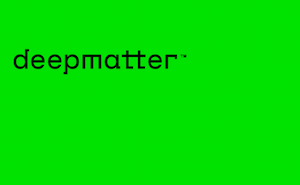Shares of Glasgow-based DeepMatter Group plc, the AIM-listed company focusing on digitizing chemistry, rose about 15% on Wednesday after it announced another collaboration with the University of Nottingham’s School of Chemistry.
The collaboration provides access to DeepMatter’s DigitalGlassware platform to support the university’s sustainable chemistry initiatives.
Separate to a project announced in February 2020, this collaboration will focus on the development of machine learning models of sustainable chemistry for researchers in the pharmaceutical sector and related chemical-based industries.
“The project will be led by Professor Jonathan Hirst, Professor of Computational Chemistry & Royal Academy of Engineering Chair in Emerging Technologies, at the University’s Faculty of Science, and will see scientists use DigitalGlassware to develop machine learning techniques to help chemical engineers and chemists make their manufacturing processes more sustainable,” said DeepMatter.
“In an extension to the project, Professor Hirst will work with scientists at the University of Nottingham’s Centre for Sustainable Chemistry, to build interactive machine learning models of sustainability, effectively rules to follow, that can be used in the early discovery phase by researchers in the pharmaceutical sector when seeking to develop new drugs and related chemicals in a more sustainable manner.
“A further project, run by Professor Ross Denton, will look at capturing data in the lab to help with forward prediction using computational modelling.
“DigitalGlassware is an integrated software, hardware and artificial intelligence enabled platform, which allows chemistry experiments to be accurately and systematically recorded, coded and entered into a shared data cloud allowing real-time and post-hoc analysis of the chemistry.
“The systematic structuring and recording of the data within DigitalGlassware means that the platform can provide large and structured chemical reaction data sets, suitable for interrogation by machine learning techniques in a way not previously possible with smaller sets of manually collected and recorded data.”
DeepMatter Group CEO Mark Warne said: “Having worked with the University of Nottingham previously in their Digital Teaching Laboratory, we are delighted to be working with Jonathan in his challenge to design, make and ultimately manufacture new molecules in a more sustainable fashion.
“We recognise that significant changes are required in the way science is organised and conducted for there to be progress towards a more sustainable environment and we are pleased that our technology will play a role in developing the industry’s sustainability.
“Jonathan, Ross and their teams will have access to our innovative cloud-based platform, DigitalGlassware, allowing them to share and use the data with machine learning and AI technologies to provide unique perspectives.”
